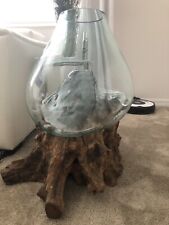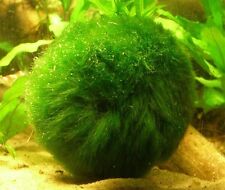The “Tide Pod Challenge” and Your Pets

In the early months of 2018, news reports of teenagers undergoing and the “Tide Pod Challenge” were rampant and the problem is ongoing. It is reported that even soldiers in the US Army were taking part in this dangerous dare.
This ‘challenge’ started with teenagers and young adults daring each other to eat a Tide Pod for bragging rights. TIME magazine reported that in the first 15 days of 2018 alone, thirty-nine cases of teenagers misusing laundry pods was reported to the American Association of Poison Control Centers (AAPCC).
How does your pet play into all this?
Detergent pods have been a popular household item for many years. Tide is only a name brand of one type of detergent pod available. Detergent pods can either contain dishwashing detergent or laundry detergent. Poisonings have been widely reported in dogs over the last decade.
Your dog may be at risk if you store your detergent pods in a low cupboard in your kitchen. Many families store their trash in the cupboard under the sink near their dishwasher detergent pods and most dogs are drawn to the smell of garbage. Most poisonings are accidental and typically with an over-zealous puppy trying to get into the trash. The pods are brightly colored and fragranced baubles and many dogs can’t resist chewing on them. Veterinarians urge pet owners to store their detergent pods high in a cupboard away from nosy canines.
How dangerous are detergent pods?
If your pet is exposed to detergent pods, serious respiratory and digestive issues can occur. The lungs can be severely irritated after exposure, leading to coughing, wheezing or respiratory distress.
Aspiration also can happen, which is when foreign material (such as liquid) is taken into the lungs.
After exposure your pet could cough for several weeks even with treatment. The detergent often “burns” the delicate tissues in the lungs and trachea and sometimes can predispose other problems such as pneumonia.
If pods are ingested, the most common problems seen are vomiting and diarrhea. If they are swallowed whole, obstruction (blockage) of the digestive tract can happen. Pods can also be ingested and slowly digested – slowly releasing the detergents. These strong liquids can cause dangerous ulcerations in the stomach and intestine. Pods that are ruptured in the mouth can experience oral ulceration and esophagitis. Gastrointestinal ulcerations are painful and can be very dangerous – potentially leading to perforation and bleeding.
What to Do If Your Pet Eats a Pod
If you think that your pet ate a detergent pod, act quickly.
Things that you can do at home to decrease the damage pods can cause include:
- Rinse the mouth, skin, hair with water until it no longer feels “soapy”
- If you think that pods were swallowed, do not induce vomiting
- Contact your veterinarian, pet poison helpline or 24 hour veterinary emergency center
- Monitor for the following signs:
- Pawing at the mouth
- Coughing
- Vomiting
- Wheezing
- Blue tongue, lips
- Retching
- Diarrhea
- Excessive drooling
If your pet experiences any of these symptoms – seek veterinary treatment as soon as possible!
Pet Poison Help Resources
Stay Safe
Always keep detergent pods out of reach of children and pets. Cabinets should be locked and pods stored up high. “Child-proof” locks on low cabinet or cupboard doors can help keep pets safe.
Talk to Your Kids
Parents of teenagers should stress that Tide Pods are NOT EDIBLE for ANY animal.
While misuse in animals has not been reported, it may just be a matter of time before teenagers try to feed Tide pods to their pets.
References
TIME Magazine online: http://time.com/5104225/tide-pod-challenge/
Military Crack-Down on Tide Pod Challenge: https://www.military1.com/military-lifestyle/article/1898414014-how-the-military-is-starting-to-crack-down-on-the-tide-pod-challenge/
Veterinary Team DVM 360: http://veterinaryteam.dvm360.com/laundry-detergent-pods-concern-kids-can-harm-pets-too










![100 Bulbs Red Tiger Lotus [Bulk Discount] | Aquarium Plants Factory® picture](/petstore/img/g/Ut4AAOSwCShlvx6l/s-l225/100-Bulbs-Red-Tiger-Lotus-Bulk-Discount-Aquarium-P.jpg)


